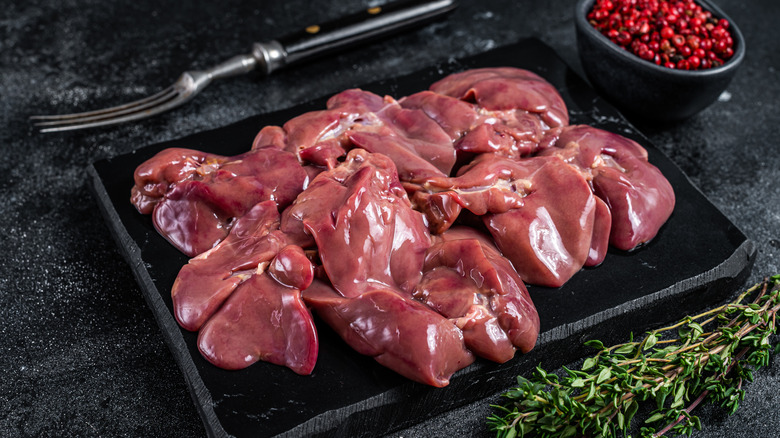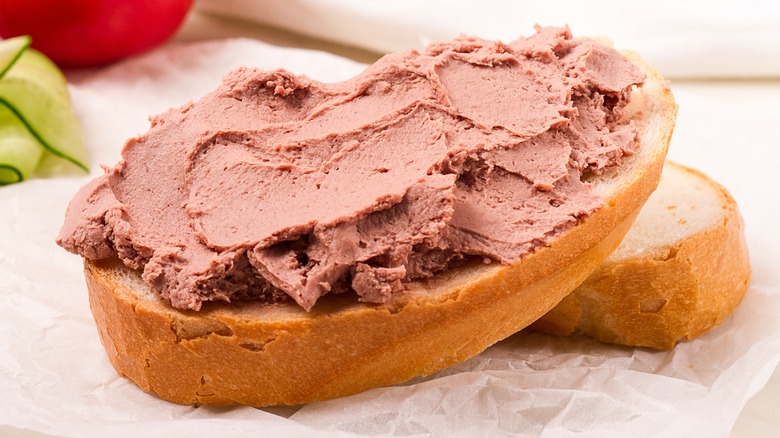Is Liver Good For You?
As the largest organ found within both humans and animals alike, the liver is instrumental in our body's ability to digest food, store nutrients, and rid our body of toxins (via BBC Good Food). No doubt the liver serves an important purpose, but when it comes to the liver as a dinner item, is it safe and healthy for us to eat?
Whether it's liver sourced from goose, beef, chicken, pork, or lamb, the organ delivers its own distinct taste and texture, reports WebMD. While the flavor may not be to everyone's liking, liver packs a punch when it comes to nutrients, including vitamin B, vitamin C, folate, potassium, phosphorus, and niacin, just to name a few. Furthermore, liver is well-stocked with iron, specifically in the form of haem, reports BBC Good Food. Therefore, eating liver may be one way to maintain adequate levels of iron in our body, which people who menstruate are often reportedly low on. Similarly, liver may also lessen one's risk for anemia, per WebMD. Not only that, but Founder and Director of CNY Fertility Dr. Robert Kiltz writes via DoctorKiltz that liver may also potentially help fight off fatigue.
So which of the many different types of liver may offer us the most health benefits? When comparing the concentration of vitamins and minerals, although it's a close call between beef liver and chicken liver, DoctorKiltz writes that beef liver takes the cake when it comes to overall nutritional value.
Possible health risks associated with eating liver
While the above certainly illustrates ways in which liver can be good for you, there are also some potential drawbacks to keep in mind. For example, liver is loaded with vitamin A, reports Healthline. So much so, that a 100-gram serving of beef liver exceeds the recommended daily intake for vitamin A by over six times. On the one hand, consuming a safe amount of vitamin A may reduce our chances of developing certain health conditions, such as breast cancer or cataracts (per WebMD). However, too much vitamin A can lead to vitamin A toxicity, according to Healthline. This can result in vision issues, nausea, vomiting, bone pain, and increased susceptibility to bone fractures. BBC Good Food notes that an excess of vitamin A has also been linked to birth defects for those who are pregnant. Therefore, individuals are advised against eating liver during pregnancy.
Liver also contains seven times the amount of copper recommended for daily consumption, reports Healthline. Overconsumption of copper can lead to copper toxicity, potentially increasing one's risk for oxidative stress and cognitive decline disorders.
Overall, when it comes to eating liver, moderation is key. While it may not be advised for everyone in all instances, Healthline suggests only consuming liver once a week.


